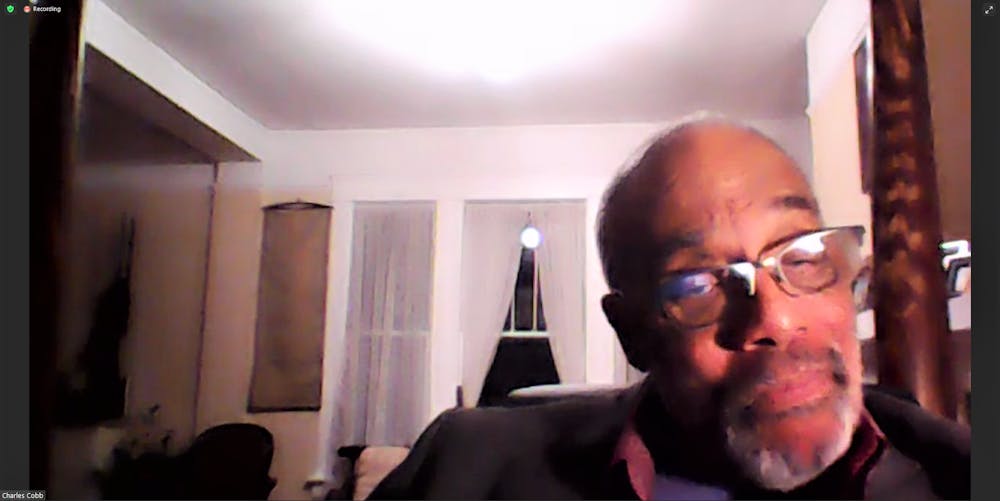Charles E. Cobb said the Civil Rights Movement is usually thought of as a mass protest in public spaces, led by charismatic leaders, in the opening of the African American History Month lecture Tuesday.
But this narrative only partially tells the story, he said.
Cobb, a journalist and activist formerly with the Student Non-Violent Coordinating Committee, spoke of various Black leaders and organizations aimed toward challenging the denial of voting rights, segregation, racial discrimination and white supremacy.
He said this includes the organized resistance of enslavement — best seen as secret railroad routes and schools, gospels of liberation in churches and the songs sung at rebellions, work slowdowns and sabotage.
Cobb said the founding principles of the United States — that all men are created equal, that they are endowed by their creator with certain unalienable rights — lay the contradictions found throughout U.S. history. This most especially applies to the founding contradiction of slavery, he said.
The fight for equality is still present, as displayed by the Black Lives Matter protests over the summer of 2020.
To reflect this, Cobb recited the first few lines of Paul Laurence Dunbar’s “We Wear the Mask":
"We wear the mask that grins and lies,
It hides our cheeks and shades our eyes, —



